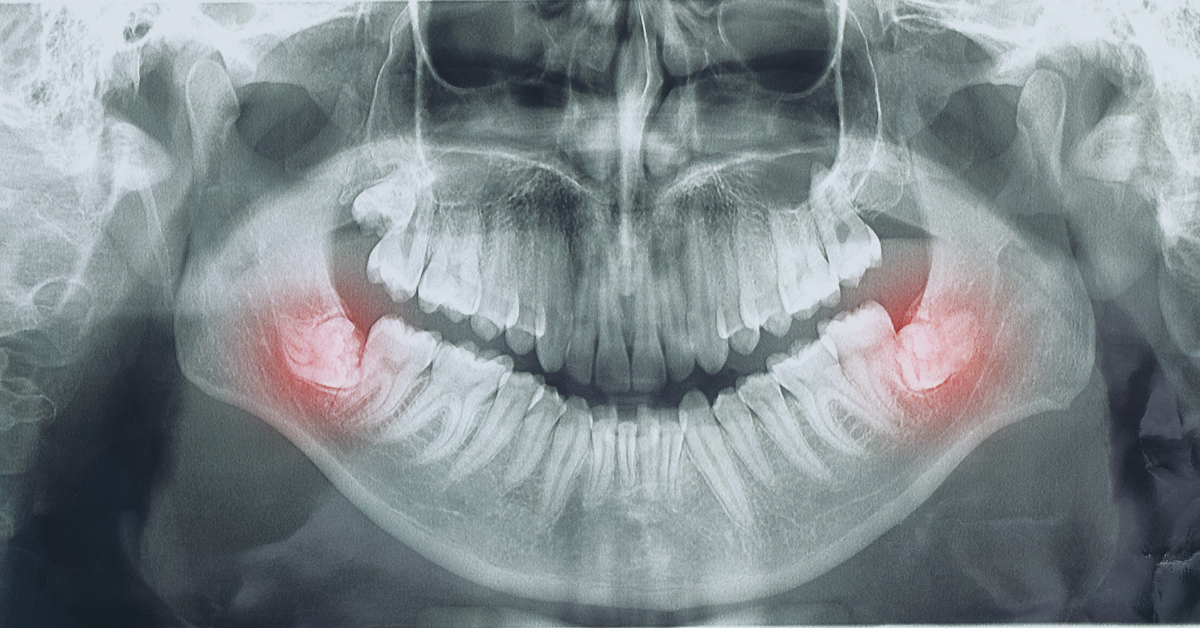Saskatoon Dental Group is a locally owned, full-scale Saskatoon dental clinic offering general dentistry services. At Saskatoon Dental Group, we are dedicated to offering excellent care to our amazing patients who are like family to us. We are grateful to treat whole families in Saskatoon across multiple generations and have a multicultural team speaking multiple languages. Consulting your Saskatoon Dental Group dentist can provide personalized recommendations based on an individual’s unique oral health situation. Wisdom teeth, also known as third molars, are the last set of molars located at the back of your mouth. Most people develop four wisdom teeth, typically two in the upper jaw and two in the lower jaw. These teeth usually start to emerge in late adolescence or early adulthood, typically between the ages of 17 and 25. But what exactly are these teeth, do we really need them, and do they always erupt as expected? Let’s look into the world of wisdom teeth to get a clear picture. Wisdom Teeth: The What, Why and When.
Wisdom Teeth: The What, Why, and When
What Are Wisdom Teeth?
Wisdom teeth are believed to be an evolutionary relic from a time when our ancestors had a tougher diet that required additional molars for grinding and breaking down food. However, as our diet and oral hygiene practices have evolved, these teeth have become somewhat obsolete.
Do We Need Them?
In today’s modern world, wisdom teeth often serve little purpose. Many people have smaller jaws than their ancestors, which can lead to issues when these teeth attempt to erupt. The lack of space in the mouth can result in impacted wisdom teeth, meaning they don’t fully emerge from the gum line. Impacted wisdom teeth can cause a range of problems, including pain, infection, and damage to adjacent teeth.
For this reason, many dental professionals recommend removing wisdom teeth to prevent potential complications. The decision to remove wisdom teeth is typically made on a case-by-case basis, taking into account factors like the individual’s age, the angle of eruption, and the available space in the mouth.
Do They Always Erupt?
No, wisdom teeth do not always erupt as expected. In fact, it’s quite common for them to remain impacted. This can be due to a lack of space in the jaw, improper alignment, or the presence of obstructions like other teeth. As a result, impacted wisdom teeth can lead to discomfort, pain, and infection.
It’s important to monitor the development of wisdom teeth through regular dental check-ups, as early intervention can prevent potential complications. Dental professionals often recommend X-rays to track the progress of wisdom teeth and identify any issues before they become problematic.
In conclusion, while wisdom teeth may have had a purpose in our ancestors’ diets, they often serve little function in the modern world. In many cases, these teeth can cause more harm than good, leading to discomfort and complications. Regular dental check-ups and X-rays can help monitor their development, and if necessary, the removal of wisdom teeth can be a proactive step to maintain oral health and prevent potential issues down the line.
Click Here to Read our other articles about good dental habits
Book your appointment today! Saskatoon Dental Group is always welcoming patients looking for a new dental family. If you would like to book a checkup or have any dental questions please do not hesitate to contact our team.
See you soon!
The Saskatoon Dental Group Team

